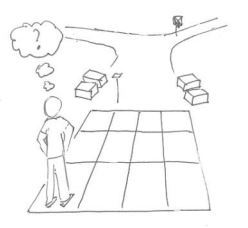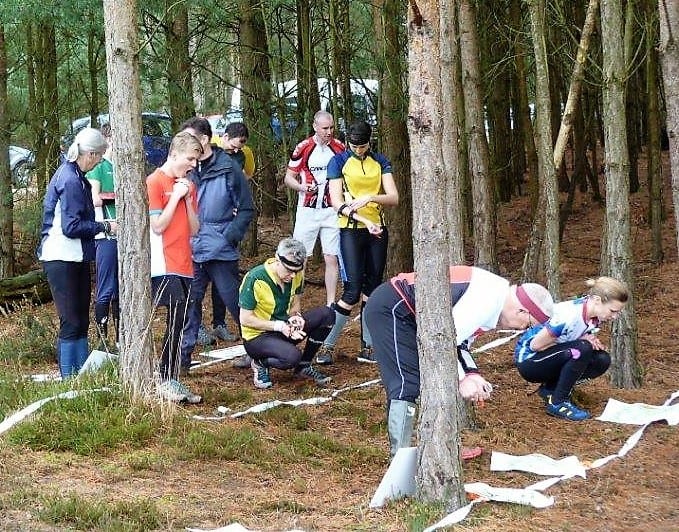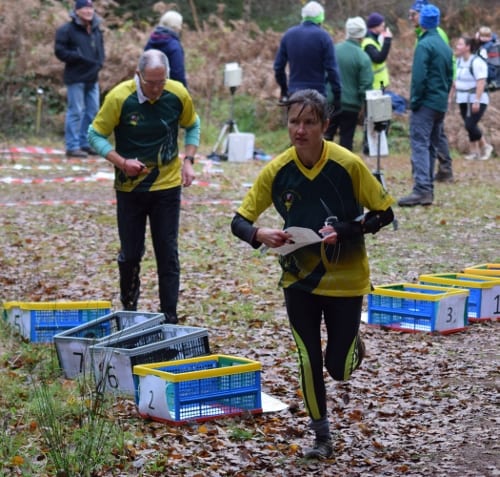Get a good start
How to start a race off well. Are you in the zone?
I have read several event reports here in QuOnicle and in SINS where the writer admits to arriving at the start in a bit of a rush, and then proceeds to make a series of early mistakes.
It's fairly obvious that arriving at the start in a flustered state is unlikely to mean you are going to be able to concentrate and get the best start to your run.
At larger events there may be start boxes at -3 minutes, -2 minutes, -1 minute. These force you to spend those minutes standing still so you have the chance to concentrate on the task ahead. At our smaller informal events you can usually go straight away, but it might be a good idea to force yourself to pause and get ready.

Some might talk about getting "in the zone", which I suppose means get in the right frame of mind. It's not the language I use - perhaps I am not serious enough (see above)! I have four practical suggestions about what to do in this time:

- To get going right from the start you need to know where you are and which direction you are facing. You have not yet picked up the map, but you can look at your surroundings and the path layout and figure out what's around you. Check your compass so you already know which way is north. Be aware that the triangle on the map will be at the start kite, which may not be at the start line. At larger events there may be a blank map in the start lanes which you can study and work it all ou
- Look at the surrounding terrain. Is it hilly, overgrown, or muddy? Will the woods be easy to run through or will it be a day for sticking to the paths? Of course the start area may not be representative of the whole area. Many people keep old maps - if you have an old map of the area you can get a head start by knowing what the area is like before you arrive. [RouteGadget can also be useful for this.]
- Think about what lessons you have learnt from past events. What new skill have you learnt which you want to try out on this run? Perhaps you need to remind yourself to count paces, or look for the route choices.
- At the risk of getting too philosophical, remind yourself why you are here. What are your intentions? To win? To give yourself a challenge? Just to get it over as quickly as possible? This will affect your choices on your course - for example you may have the choice between an easy path and a complex off-track route. You may also face the choice of giving up early and not completing the full course. Knowing your priorities helps you decide. I have sometimes chosen an indirect route simply because it looks more challenging and therefore more fun! Which for me is the whole point.
Richard Sansbury
- Skilling Up- Hints and Tips for Improvement #16, QuOnicle 158, November 2014
